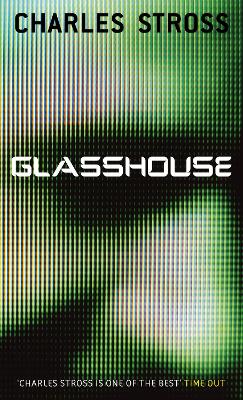Reviewed by adastra on
The book is about a 27th century war veteran named Robin, wearing a male body (it is common to back yourself up and change bodies as desired). To deal with his past in the war, he underwent memory surgery and is now not entirely sure who exactly he is. But he soon finds out that his former self volunteered to take part in a "glasshouse", a closed experimental research society set in the "Dark Ages" (late 20th century). This is were he wakes up - confused, disoriented, and stuck in the body of a frail woman, assigned the name Reeve.
This book is one of the rare ones which kept me reading non-stop. Reeve's descriptions of the dark ages are very amusing, and as the conspiracy around the glasshouse unfolds, the book gets ever more captivating.
Reading updates
- Started reading
- 20 March, 2012: Finished reading
- 20 March, 2012: Reviewed
